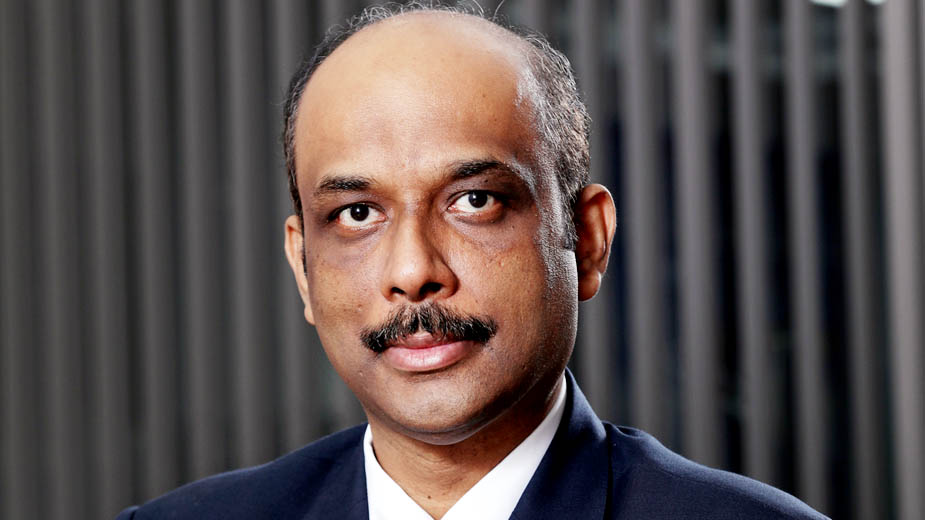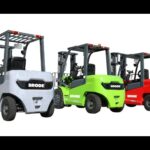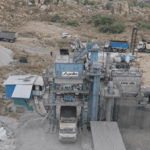Rural India is set to emerge as a strong growth driver
We remain positive and hopeful for the future, says Deepak Shetty, Deputy CEO & Managing Director, JCB India
What is your assessment of the current scenario and the path to recovery?
Covid-19 has had an unprecedented effect on several industries including ours. It resulted in an extremely challenging period, something which nobody could have planned for. All infrastructure projects had come to a standstill in April and May due to the unforeseen pandemic. However, we are seeing some green shoots in the sector– the months starting June till September have seen some revival. The supply chain which was impacted by Covid-19 has shown good resilience. Additionally, measures and reforms announced by the Government including stimulus packages helped stabilise the impact on the economy.
Similarly, it has been a challenging time for our dealers as well in spite of which, our entire dealership network remained close to our customers. Our Service Engineers travelled out to support and service the equipment. Our significant reach through 700 outlets across the country, along with the use of Digital Technologies helped us stay connected to our customers. Despite the global economic breakdown, we remain positive and hopeful for the future. As the thrust on infrastructure creation continues to be a priority for the government, we are optimistic of a strong recovery. Rural India, where we have a significant presence, is also set to emerge as the new growth driver for us in the coming days.
We have introduced products that deliver a combination of value, new digital technology and world-class quality. Supporting the government’s vision of ‘Atmanirbhar Bharat’, we aim to continue to bring global technologies and skillsets in India, through indigenous manufacturing and competitive products. We believe that we are stronger together. However, it is still very early to say anything. The situation can change quickly, it is quite uncertain and everything depends on how the pandemic plays out. For instance, if one part of the country goes under a lock down, it can have a cascading effect on the supply chain. Hence, it is important to see how the year goes ahead further. It is critical that the momentum continues.
How has government’s massive push for infrastructure creation aided the company and the industry? Recently, the government has also awarded more roads and highway projects for this fiscal year. Any suggestions on government measures additionally needed for benefiting stakeholders. Where do you see growth prospects for the future?
With the phase wise unlocking and recommencing of economic activities, we are already seeing a revival of construction activity in the country. Infrastructure projects have restarted which is leading to green shoots in the construction equipment industry. A strong focus, along with a sustained spend on infrastructure development would result in multiple long-term benefits.
The Government’s impetus on construction of roads and highways has always played a pivotal role in growth of the sector. The reforms in the sector are a step in the right direction as it is expected to give a strong push to highway construction. The Government has also committed an investment of ₹ 111 lakh crore in the National Infrastructure Pipeline. This proposed plan must continue as the growth of the infrastructure sector will create demand with a multiplier effect and will also contribute to the spike in urban demand.
At a national level, Railways, Irrigation and large projects like Sagarmala and Bharatmala should also be given the impetus. This will strengthen logistics and develop requisite infrastructure enhancing capacity at ports, improving operational efficiency and connectivity. All of this would require the use of smart construction equipment. There are some liquidity related challenges that the industry is facing. Transmission of loans needs to be strengthened further – NBFCs (Non-Banking Financial Corporations) and banks should not become totally risk averse with regard to funding. Release of payments to the major infrastructure companies is a positive move, and will certainly help all stakeholders.
Going further, two key sectors are set to emerge in the coming years – first being Infrastructure development in Rural India and the other in the creation of a world-class Healthcare infrastructure across the country. Rural India is set to emerge as a strong growth driver, especially with the recent push by the Government through programmes such as PMGSY. Additionally, the movement of migrant workers will allow creating a better rural-urban re-balance. Schools, colleges, industries will need to be created and segments like municipal waste, village roads, rural infra are set to grow. From a healthcare infrastructure perspective, we need to revolutionise the sector with world-class on ground Health care facilities built across the country. Hospitals, Institutes, research facilities, etc, will need to be scaled up, all of which would again require the use of smart construction equipment. Thus, with the revival of consumer sentiment in urban areas and the increasing demand from the rural regions, we are hopeful of a brighter future. Additionally the focus on creating100 new airports, Smart cities and Metro projects will certainly open up newer opportunities. Infrastructure creation also opens up opportunities for allied industries like raw material, quarrying, equipment manufacturing, etc, thereby creating jobs and livelihoods.
What is your view on Government's Atmanirbhar movement and 'Make in India' initiatives? How is the Company tapping its potential?
The ‘Make in India’ programme was launched six years ago with a focus on making India a ‘Manufacturing Hub for the World’. Today, it has dovetailed into Vocal for Local and the ambition to become ‘AtmaNirbhar’, or Self Reliant. India will need to be competitive and strong-willed to be able to compete with global players in all aspects of the value chain including demand and supply. The shift to Local Manufacturing has already begun. To cater to the vision of making India ‘AtmaNirbhar’ (self-reliant) and to compete with global standards, the industry has realised the criticality of investing in building world-class infrastructure in the country. Industry is focusing on greater adoption of technologies like Telematics, IoT, Big data, VR and Data Analytics along with Machine Learning.
We today have five state of the art factories in Delhi-NCR, Pune and Jaipur – all of which operate on the principle of ‘One Global Quality’. Our Jaipur factory is also a significantly gender diverse facility, with over 30% of the workforce on the shop floor being women. Our sixth factory at Vadodara which will focus on exports is currently underway. Innovation has been the corner stone of JCB’s operations around the world. In India we have a full design and innovation centre at Pune which is our largest outside of the UK. This facility develops exciting and new technologies of the future for Global and Domestic projects. We thus, Innovate, Design, Manufacture, Sell and Export from India. We have exported our ‘Made in India’ products to over 110 countries from India.
JCB has always believed in Localisation. Our flagship product, the JCB backhoe loader is indigenised to almost 97% (by value). This has been possible due to sustained efforts over the years. The same ‘Made in India’ machine is exported to countries around the world. And we are further committed to increasing the localisation levels across all our product lines and are working relentlessly to reduce imports. JCB is an embodiment of the Prime Ministers vision of ‘Make in India’ and Atmanirbhar Bharat. Our machines have been contributing to the building of world-class infrastructure in the country for over 40 years.
Name few key projects where the JCB machineries are currently deployed or are in demand.
JCB India as a full-range infrastructure equipment provider manufactures over 60 different products in eight different categories which include Backhoe Loaders, Excavators, Compactors, Telehandlers, Wheeled Loaders, Skid Steer Loader, Mini Excavators and Generators. Our innovative and intelligent range of machines exhibit the blend of technology and digital innovation and are designed to cater to the varied infrastructural demands. Nationally, JCB machines have already been deployed in projects pertaining to Railways, Irrigation and large projects like Sagarmala and Bharatmala. JCB machines are expected to witness significant deployment in near future with the emergence of infrastructure development in Rural India and in the creation of world class Healthcare infrastructure across the country. Additionally, the Government’s focus on creating 100 new airports, Smart Cities and Metro projects will certainly open up newer opportunities for our machines.
JCB Backhoes continue to find great use at almost every road construction site, in both urban and rural India. Over the years, the product has gone through various stages of development and JCB has continually invested in the product to ensure that customers, at all times, get the most technologically advanced and innovative machines. We see this multipurpose machine being used in almost every road project, be it construction of Highways in urban India or Rural Roads.
JCB’s Excavators are also seen in action at various road construction and development sites. Large excavators are used at mining sites. Our Mini Excavators cater to the niche segment and are being used for different applications such as Urban Development projects or projects that demand compact machines to work in a restricted space. With infrastructure being developed in many constricted urban areas, these compact Excavators are finding great utility. For the roads and highways, our range of compactors- the VMT330 (a 3T Class Mini Tandem Roller), the VMT860eco (a 9T Class Tandem Roller) and the JCB116 (a 11T Class Soil Compactor) are also most suited. Our Wheeled Loaders are equipped to be used for bulk material loading applications.
Which key features deployed in your machines for customer’s safety and security as well as to offer enhanced productivity and efficiency?
Customers today want utility and efficiency of the equipment without compromising on safety. Newer concepts like Telematics, IoT, Big Data, VR and Data Analytics along with Machine Learning have the capability to play a major role in meeting customer demands and increasing the efficiency of the sector. JCB India has been innovating continuously to create smarter machines that efficiently fulfil this demand. Our vision is to ensure that our customers get technologically advanced and innovative ‘Made-in-India’ products, thereby also contributing to making India a global manufacturing hub. Through this indigenous manufacturing of globally competitive products, we are also ensuring our support to the Government’s AtmaNirbhar Bharat Abhiyan.
Enhanced fuel efficiency and smart machine management can be experienced in these machines through LiveLink – an advanced telematics technology that benefits operators in better fleet management through remote monitoring. It helps users increase productivity, control costs and ensure asset safety. Till date approximately 1,60,000 LiveLinkenabled JCB machines have been sold. These machines can be monitored for – security, operations and service (SOS) on the mobile devices. Machines can be geo-fenced, time-fenced and can be located anywhere. Customers get to know about the machine’s health, fuel level, battery conditions, etc. – almost all critical parameters of the machine on their mobile device. It also gives out service reminders and the history of the machine.
We have pioneered the integration of digital technology in our ‘Intelli’ series of Construction Equipment. This has improved productivity, reliability and efficiency of our machines to ultimately benefit our customers with ease of operation and cost profitability. The new ecoXpert 3DX Backhoe Loader comes with fuel savings of up to 12% and up to 22% lower maintenance costs. The machine has 30 new features like smooth gear shift, new ergonomic seat, LED lights, etc., and is also equipped with JCB’s ‘IntelliPerformance’ and ‘IntelliDig’ technology that gives operators real time indication on the depth and reach.
JCB has also pioneered the integration of digital technology with its digital initiatives for customer support, which are an industry first, in its kind. The JCB genuine parts application enables customers to order parts of JCB products on their mobile. Further, an internal tool – Smart Serve has been developed to help dealerships support engineers to improve efficiency and productivity, thereby improving profitability. JCB India also provides the widest after-sales service to its customers through 700 outlets and over 60 dealers. Since these machines work in far-flung areas, well-connected product support must be offered to customers to minimise the downtime and maximise productivity. JCB uses state of the art technology to provide the industry’s finest customer support for its esteemed customers.









